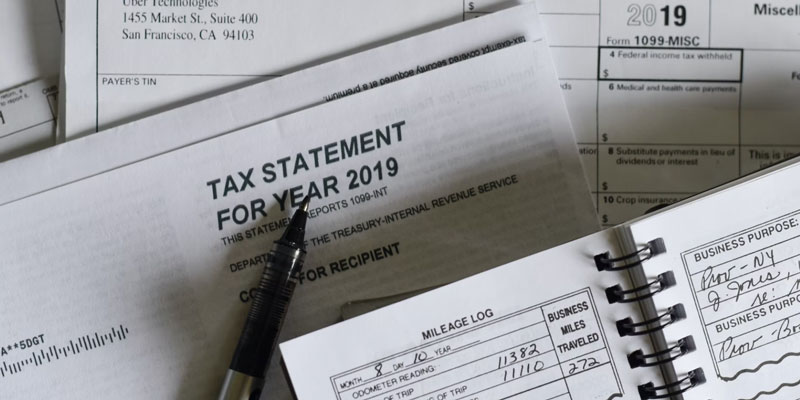IPO vs. Private Placement: What's the Difference
May 26, 2025 By Kelly Walker
IPO is an abbreviation for Initial Public Offering. It is underwriting by banks which facilitates investments. Private Placements include investment through pensions, mutual funds, etc. Let us learn more about these modes of investment and the differences between IPO and private placement in this article.

Private companies wishing to seek investments may do it by issuing IPOs or Private placements. IPOs are issued to the general public seeking investment. On the other hand, Private Placements are securities that are issued only to selective investors.
In this article, we will look at initial public offering vs private placement in detail.
Importance

IPO
IPO includes underwriting by an investment bank. Basically, it facilitates raising capital by making securities available for sale in the stock market or to the general public.
- Initial Public Offerings are more convenient for small businesses. They can utilize this facility to raise and fulfill their capital requirement. This will burden them less financially.
- While obtaining an IPO, the issuer takes help from another firm, preferably an undertaking. With this, you may decide the type and nature of security you wish to issue. You can also determine the number of those shares, the most reasonable price for issuing, and the right time to issue. In reality, several underwriting firms hold a considerable amount of shares they wish to sell to their customers or clients at the initial sales price. However, average investors can obtain the desired shares once they start trading in the secondary or the stock market.
- Initial Public Offerings may be highly risky for those investing. One of the main reasons for this may be because of the need for more scope for evaluation due to having no previous marketing activity. That is why you must do proper research before investing in the same.
In the United States of America, in 2012, enacted legislation. It was called the JOBS Act or the Jumpstart Our Business Startups Act. This Act aims to reduce the strictness of the SEC (Securities and Exchange Commission) regulations, especially for small businesses. It does so by lowering several requirements for companies that have a revenue lesser than $1 billion. Additionally, it enables better accessibility to provisions such as crowdfunding.
Private Placement
Private Placement is the activity where a company sells its securities to a selective or limited number of investors. This may include trading through platforms such as pensions, banks set up for investment and mutual funds. However, the following points concerning Private Placements are to be kept in mind:
- Companies generally opt for private placements when the capital requirement is less. If done diligently and by the SEC regulations, you may benefit from provisions such as exemption from public offering requirements such as financial reporting. This will further save the time and resources of the issuing company.
- A company issuing private placements may also sell complex securities. However, this has to be done only to accredited investors.
- Under SEC, Regulation D helps companies meet their financial requirements quicker and with lesser costs involved when compared to an initial public offering. Startups or small companies usually do Private Placements. Moreover, this regulation enables trading or raising capital through debt or equity without the requirement to register with the Securities and Exchange Commission for the same.
- When compared to IPOs, issuing private placements may be more difficult. This is partly due to the risk that arises with lower liquidity.
IPO v Private Placements

- When it comes to shares involved in Private Placement, it is not required for the company to offer its shares to the general public. While in Initial Public Offerings, the company issues its shares through a public offering i.e... to the general public.
- An IPO is a process of enabling shares of a private corporation to the public for trading. This may be done for a new stock issuance. On the other hand, private placements are usually resorted to when you aim for ample capital in a short time.
- Unlike private placements, companies generally opt for public offerings when they wish to attract investors on a larger scale.
- In private placements, shares are either held by already selected or private investors or owners. In public offerings, shares are owned by the public and available and accessible to them.
- When it comes to the regulation aspect, Initial Public Offerings are relatively more regulated than private placements.
- Companies usually go for public offerings when their target investors include retail and institutional investors in general. Private placements are opted for when the company cannot attract the said investors on a large scale.
- The Securities and Exchange Commission regulations or the SEC sill apply only to Initial Public Offerings. That is, they do not apply for private placements.
FAQs
- Can an IPO be a private placement?
Yes. An IPO may also be a Private placement. Both of them are ways in which companies may resort to. The purpose of these, however, is to raise capital through investments or by issuing securities.
- What is the advantage of private placement over IPO?
Private placements are securities that are issued privately. Unlike public offerings, these have relatively lesser formalities and regulatory requirements. Features like this make private placements a simpler and more convenient way to issue and invest in securities. Moreover, whether the company is listed or not has no impact on the prices of its shares.
- What is the difference between a private placement and a prospectus?
Private placements are regulated per the terms and conditions of the memorandum. On the other hand, a prospectus is used for issues traded publicly. It is an offering instrument for companies, including those introducing a public offering or those planning to sell common stock.
- What is a private IPO called?
A private Initial Public Offering is something that a company resorts to. It usually opts for this when the company is unwilling or able to fulfill all the obligations involved in an IPO. A PIO or a Private Initial Offering is aimed at private and equity capital markets. This issuance may either be wholly or partly private.
Conclusion

An Initial Public Offering differs from a private placement in several ways. Reputed companies usually issue an IPO to the general public. On the other hand, a private placement, as the name suggests, is something a company privately or selectively offers to accredited, selective, or institutional investors.
Hence, private placements gain several benefits, such as exemption from regulations over IPOs. This helps private placements save on costs generally spent as underwriting fees or otherwise. However, the amount of liquidity involved in private placements is relatively low. Yet, they have sufficient potential for earning great returns.

Why You Donate Your Car To Charity
Nowadays, charitable contributions are more important than ever. When you donate to a good cause, you not only help those in need, but you also gain in other ways: financially, emotionally, and psychologically. Donating an automobile to charity is a great act of selflessness that benefits the whole community. It may be out of the ordinary to donate in this way, but even the smallest amount can make a huge difference for those in need. In this article, we'll go over six reasons why donating your car to charity is a great idea.
May 26, 2025 Kelly Walker

Share Repurchases vs. Redemptions: Pros and Cons
Learn about the pros and cons of share repurchases and redemptions for companies and shareholders. Discover the benefits and drawbacks of each method.
May 26, 2025 Kelly Walker

Amazing Guide On How To Qualify For The Home Office Tax Deduction
This post introduces the home office tax deduction eligibility and its other aspects
May 26, 2025 Rick Novak

Economics of Buying a Beach House
If it is well-managed, renting out a beach property might allow the owner to live in the home rent-free during the off-season when the beach is less crowded.
May 26, 2025 Kelly Walker

Most Prestigious Finance Internships
Learn about the most prestigious finance internships available and get a comprehensive guide on finding the best program for your future career.
May 26, 2025 Kelly Walker

How Is Cashback Profitable for Credit Card Companies?
Get insights into how credit card companies benefit from cashback programs, plus some examples that demonstrate the profitability of this type of reward program.
May 26, 2025 Kelly Walker